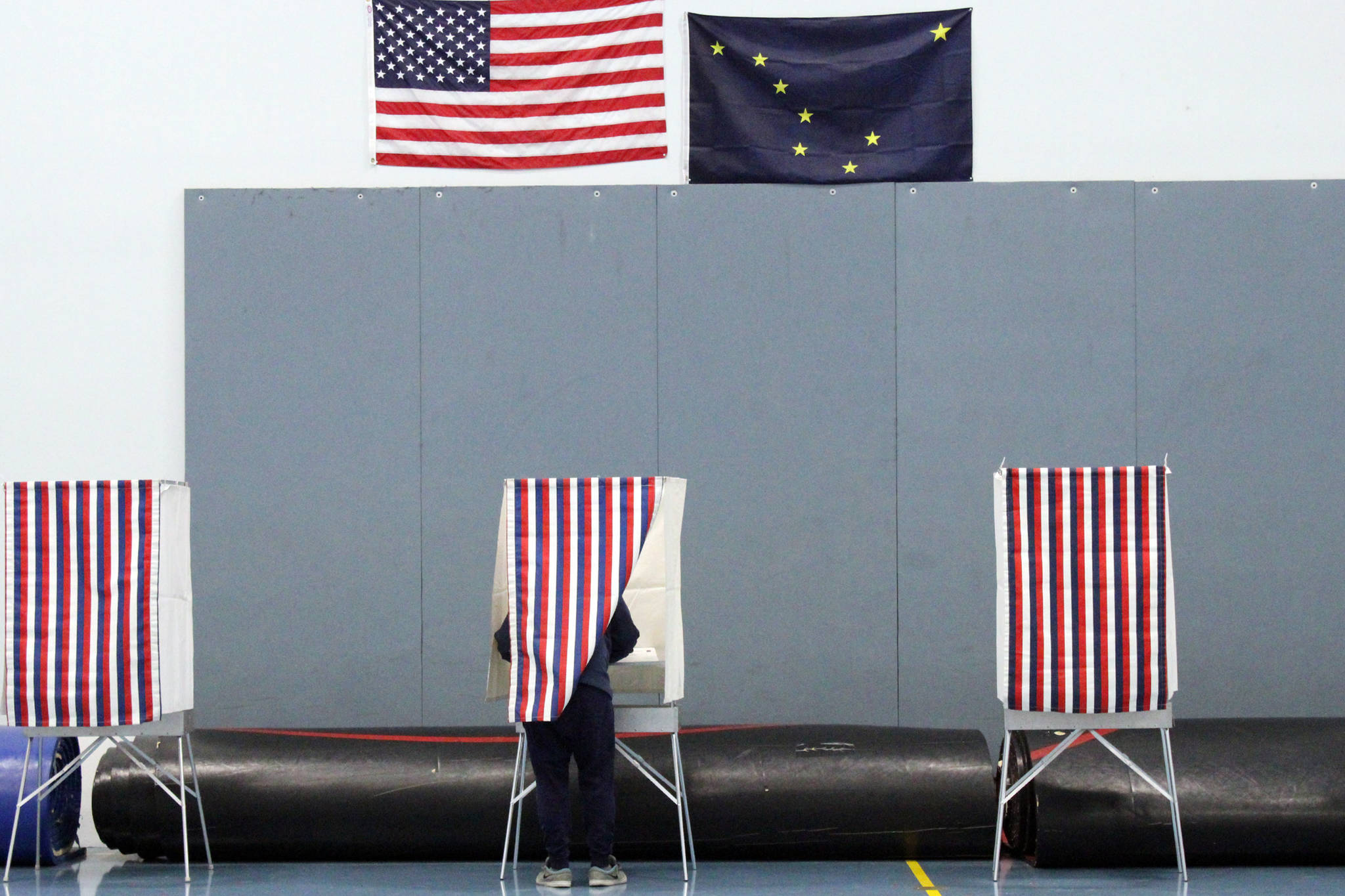Editor’s note: Ordinarily My Turn submissions are limited to one per person per month, but the rule is being waived to allow someone to address a My Turn that directly named the writer’s organization in a timely manner.
By Judy Andree
The League of Women Voters of Alaska would like to correct some misconceptions stated by Judy Ripley in her April 13 letter to the Empire concerning the For the People Act, (S. 1), a bill which the LWVAK continues to support.
The Ripley letter claims that S.1 removes “most of the guardrails that assure fair and accurate elections.” In reality, S.1 restores an important guardrail originally in the 1965 Voting Rights Act that protects voters from various forms of voter suppression at the state level. This is the so-called pre-clearance guardrail that requires a state found guilty of voter suppression to submit future voting changes to the Department of Justice for clearance. When that Section of the VRA was struck down in 2013 by the Supreme Court of the U.S., many state laws were changed to strengthen voter suppression.
In addition, the notion that S. 1 has “the federal government control elections to an unprecedented degree, taking authority away from state election laws,” is a common refrain from those who oppose S. 1. However, the federal government is the only agency that has the power to require that all eligible voters have equal access to the voting process. Why should voters in Alaska find it easier to vote (because Alaska has a system based on voting rights and voter needs) than voters in other states where long lines and massive purging of voter rolls is the norm? Shouldn’t we all be treated equally across the country when it comes time to vote?
Another complaint focuses on changing “the way we draw congressional districts.” Both major parties are guilty of gerrymandering across the country in which district lines are drawn in a manner that allows politicians to select their voters rather than the voters selecting their politician. Alaska has had court challenges to its redistricting efforts for the last four decades. Changing the way we draw congressional districts so that all states follow a process that is led by an independent redistricting board strengthens democracy by creating districts that are fair and do not end up in the Courts.
Same-day voter registration is often criticized with the argument that it doesn’t allow time to completely check the voter’s information. However, we already have the right to register to vote and vote for President and Vice-President on election day as well as during early voting, and the process for this does allow time to check the voter’s information. The process involves an absentee-in-person (AIP) ballot process during which the voter registers on a ballot envelope, votes, and places the voted ballot in a secrecy sleeve before sealing it in the registration envelope. The same process is used for folks who need to change their residence address or want to change their party affiliation. These AIP ballot envelopes are checked by pairs of election workers for accuracy of information before the ballots are counted. And by the way, S. 1 proposes an automatic voter registration (AVR) process such as the one Alaska has with the PFD registration. With AVR, there would be few voters needing to register on election day. And those few voters would have their information carefully checked before their ballots are counted.
Citizens use their voting rights to let their voices be heard. When we have gerrymandered districts, our elected officials are sheltered from any voices that don’t already agree with them. When we demand photo ID’s that cost precious dollars, we eliminate voters. When we purge voters from voter lists based on inaccurate information, we disallow their right to vote. The For the People Act can help modernize and safeguard our voting processes so the right to vote is protected for all eligible citizens.
• Judy Andree is president of the League of Women Voters of Alaska. Andree is a 54-year resident of Southeast Alaska and a retired associated professor for University of Alaska Southeast. Columns, My Turns and Letters to the Editor represent the view of the author, not the view of the Juneau Empire. Have something to say? Here’s how to submit a My Turn or letter.

